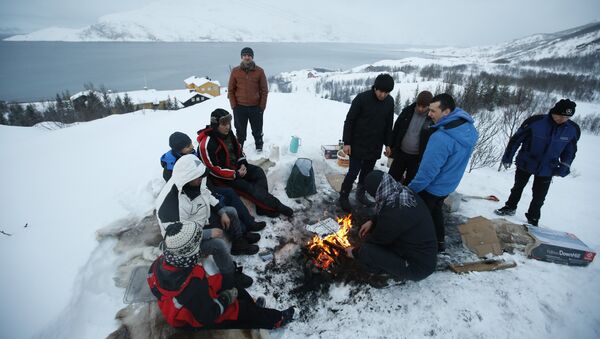"The Significance of Immigration for Demographics and Macroeconomics Toward 2100," the 142-page recent report by Statistics Norway has uncovered detrimental economic consequences of immigration, as more people will be forced to share the Nordic country's "oil pie."
"We have estimated that realistic projected immigration will weaken the country's growth by 0.3 percent annually. The main reason is that oil revenues will have to be divided between more people. Additionally, immigration is increasingly characterized by immigrants from Africa and Asia and they contribute less to the process of value creation than other immigrants," former SSB researcher and economist Erling Holmøy told the Norwegian daily Aftenposten.
According to Holmøy, an imminent need for increasing tax rates will arise after 2025, unless the Norwegian government reverses itself on spending its cherished oil fund. Holmøy evaluated a spike in taxes at around NOK 10,000 ($1,200) per individual as a result of immigration. Immigration was also found to weaken public finances by means of various support and integration schemes.
The researchers assume a gross immigration of 60,000-70,000 a year until the next century, of which immigrants from developing African and Asian nations are expected to constitute just over 40,000. At the same time, immigration from Poland, Lithuania and other East European countries will decline, as opposed to Swedes, Americans and other Western immigrants, whose percentage is expected to remain more or less stable. Because up to 40,000 people leave Norway every year, net immigration is estimated at around 25,000 a year.
By 2100, Norway's population is thus expected to reach 8.5 million, a marked increase from today's 5.3 million. The percentage of Norwegian-born inhabitants with at least one Norwegian parent will drop from 83 percent to 64 percent, whereas the proportion of people with a non-Western background will increase from 10 percent to 29 percent.
Professor Grete Brochmann of the University of Oslo said she had no reason to doubt the quality of Erling Holmøy's immigration analysis, claiming she has "always perceived him as a highly competent professional."
Brochmann contended that the immigration debate was polarizing and characterized by strong emotions, with most people having strong opinions one way or another.
"This is why it is important to provide solid data to equip politicians with the best knowledge," Grete Brochmann told Aftenposten.




